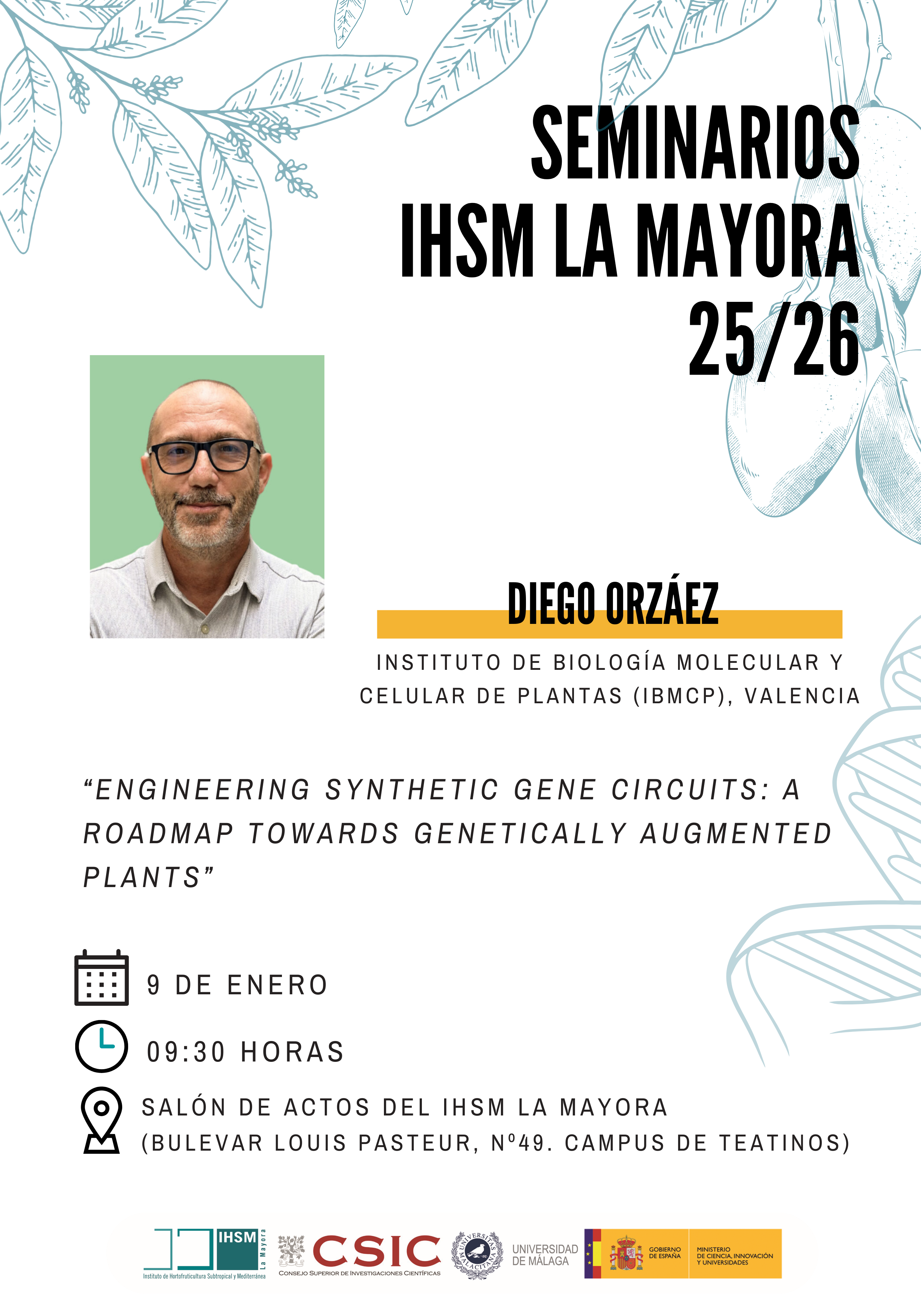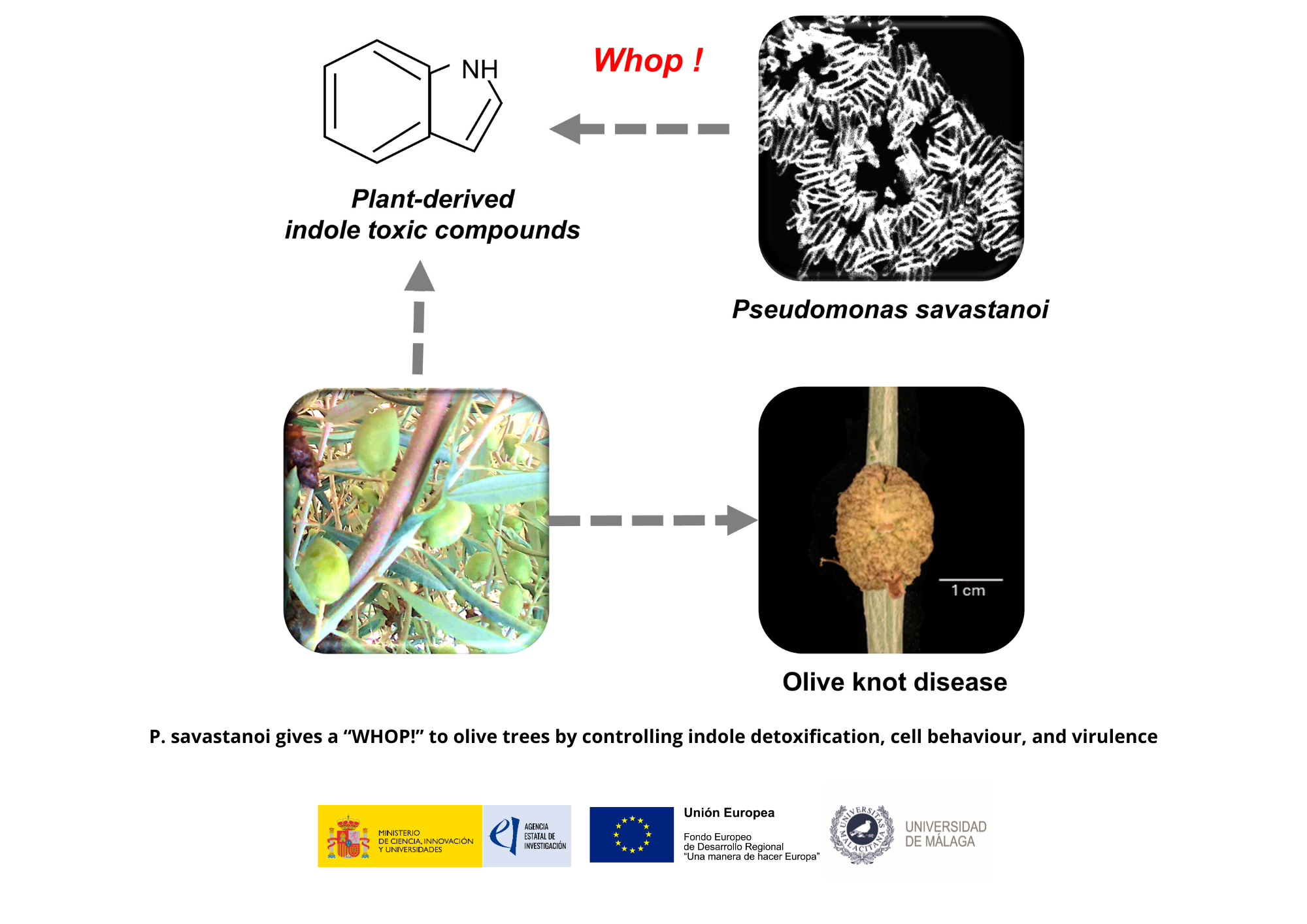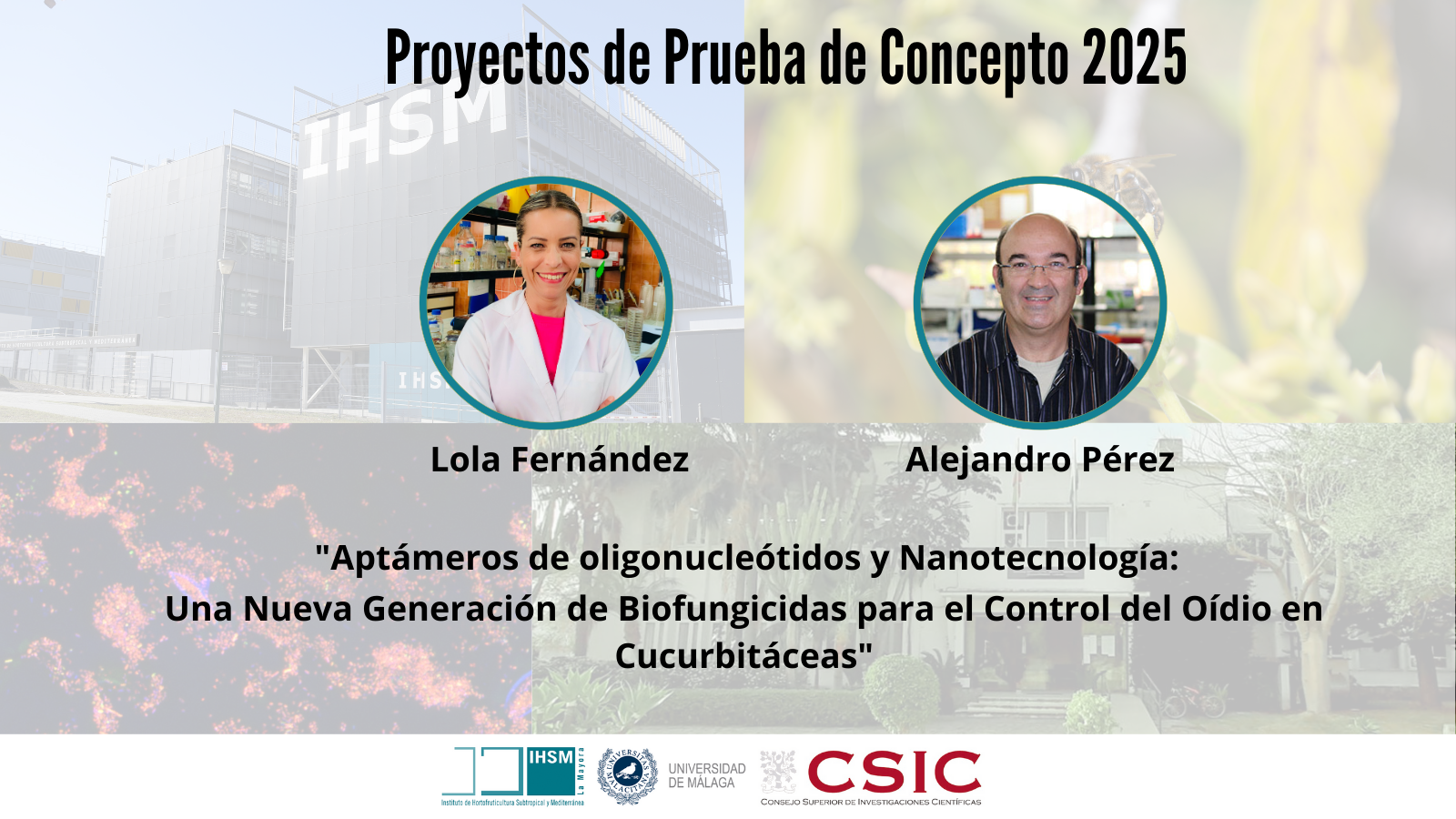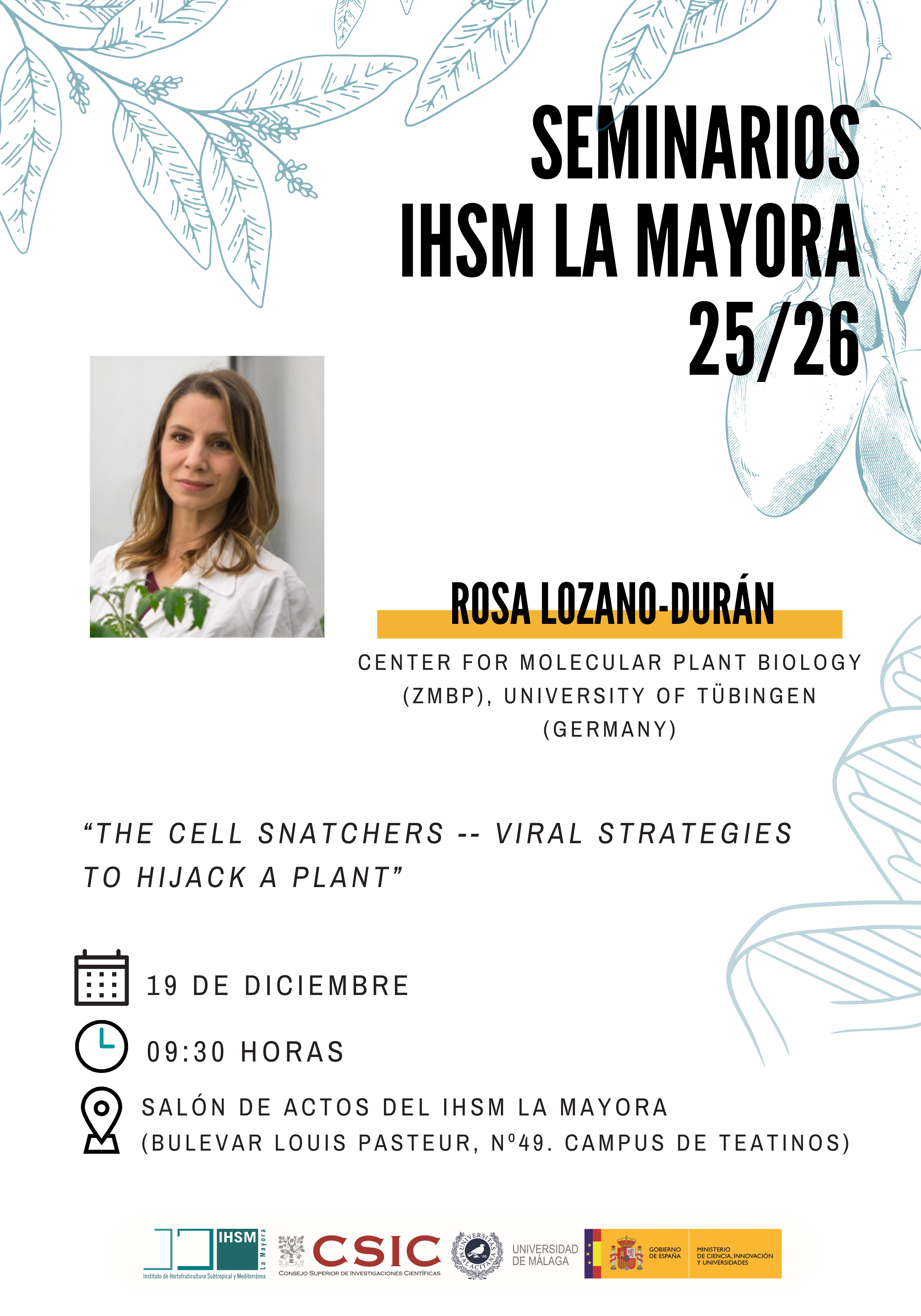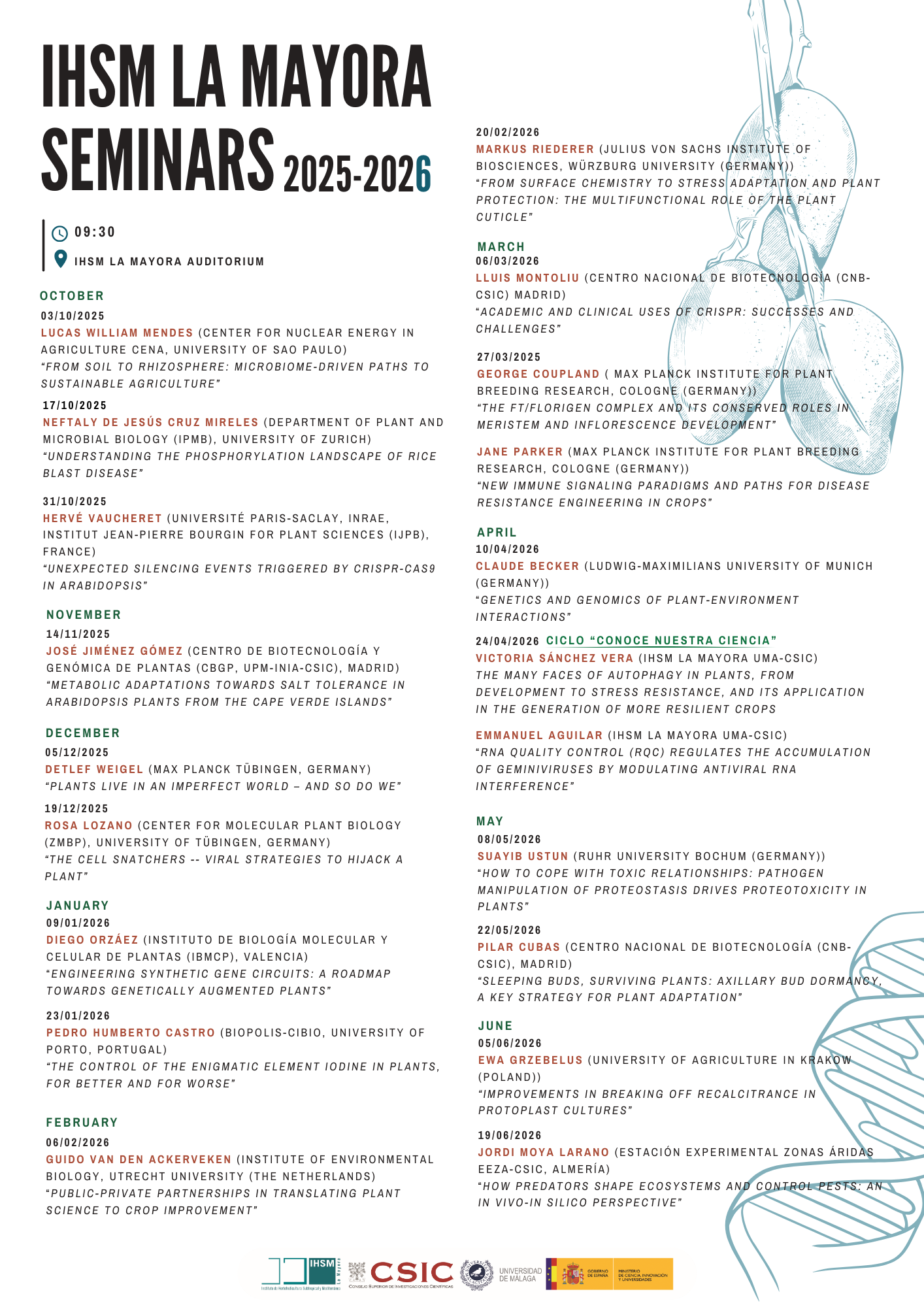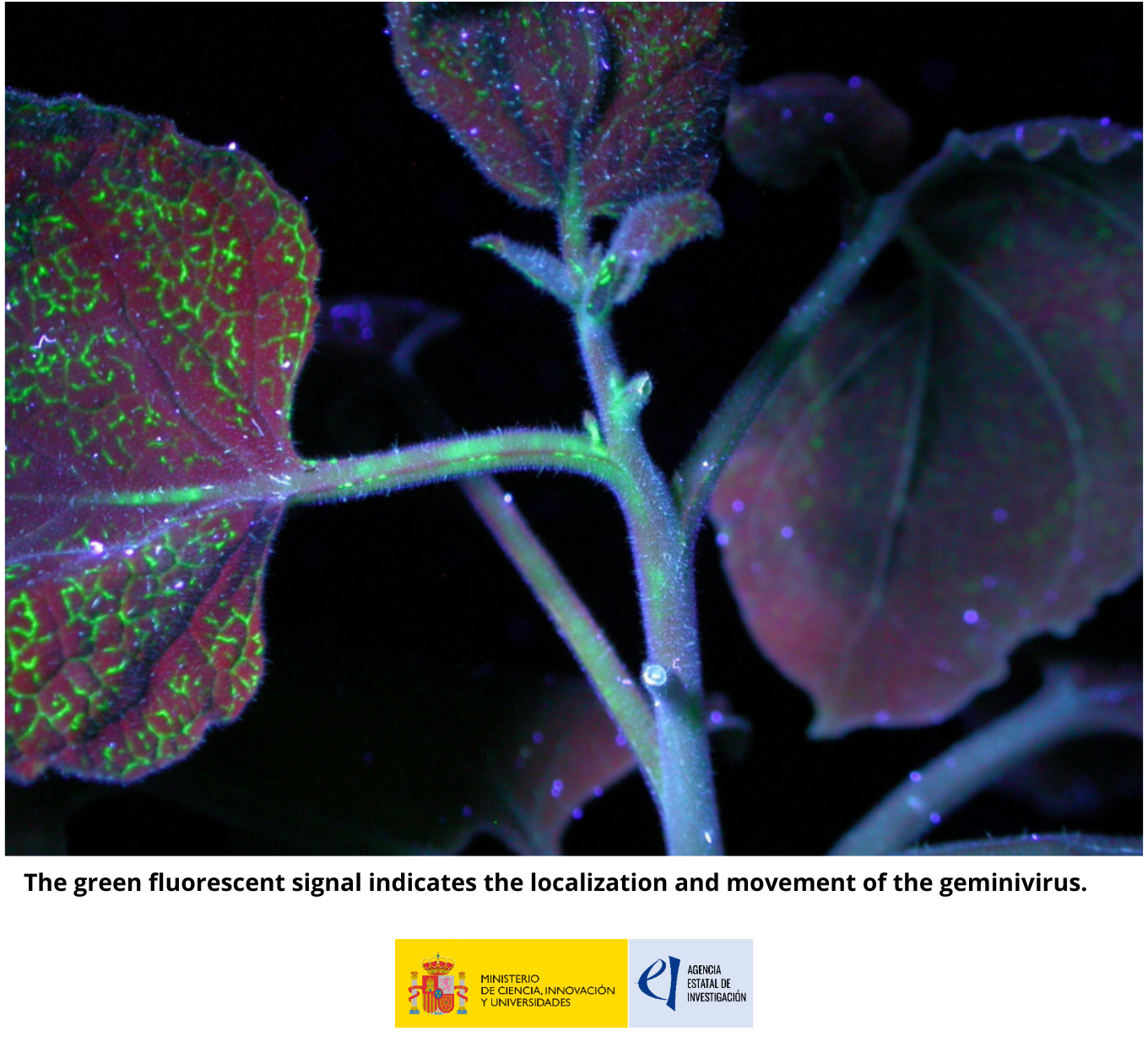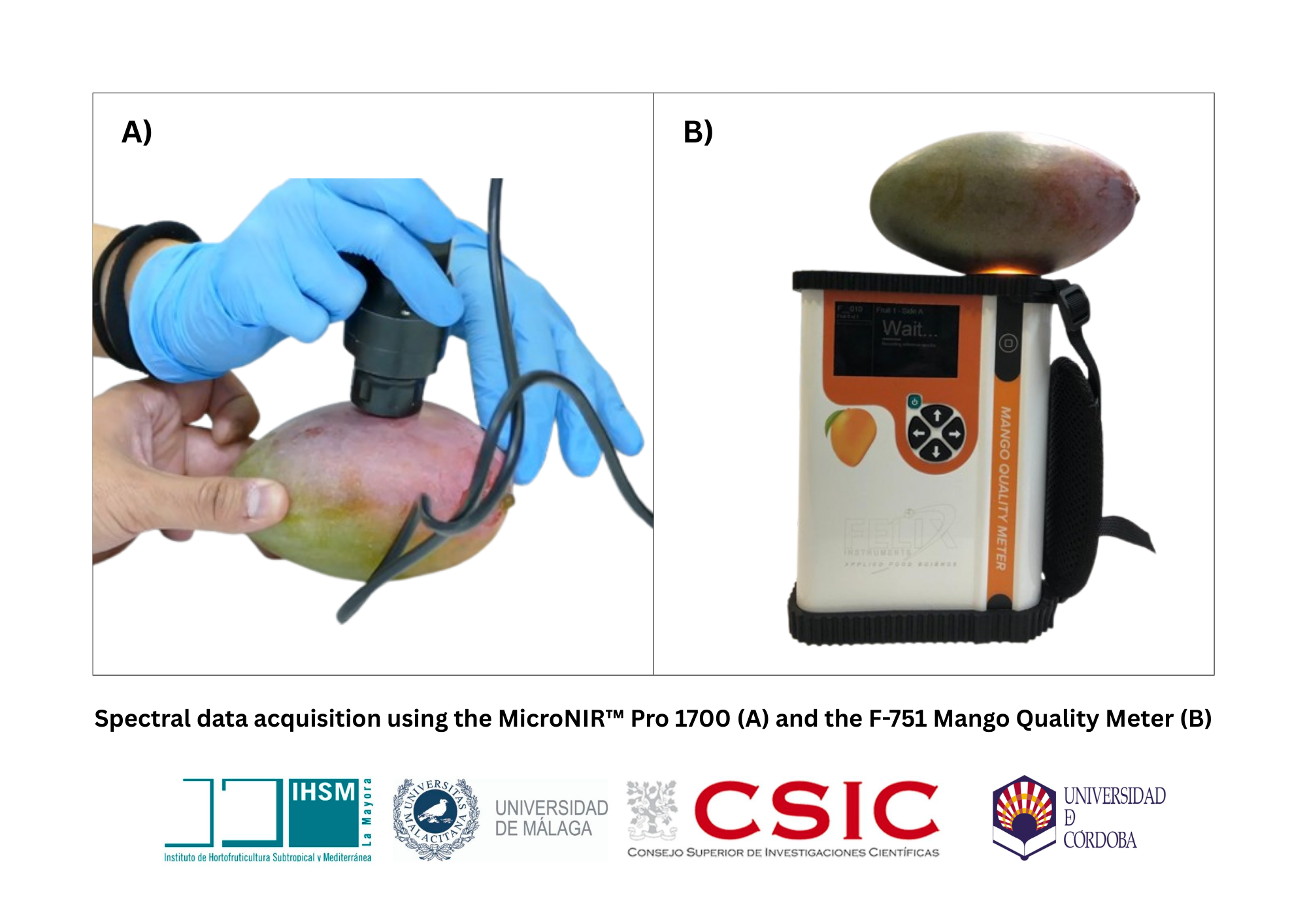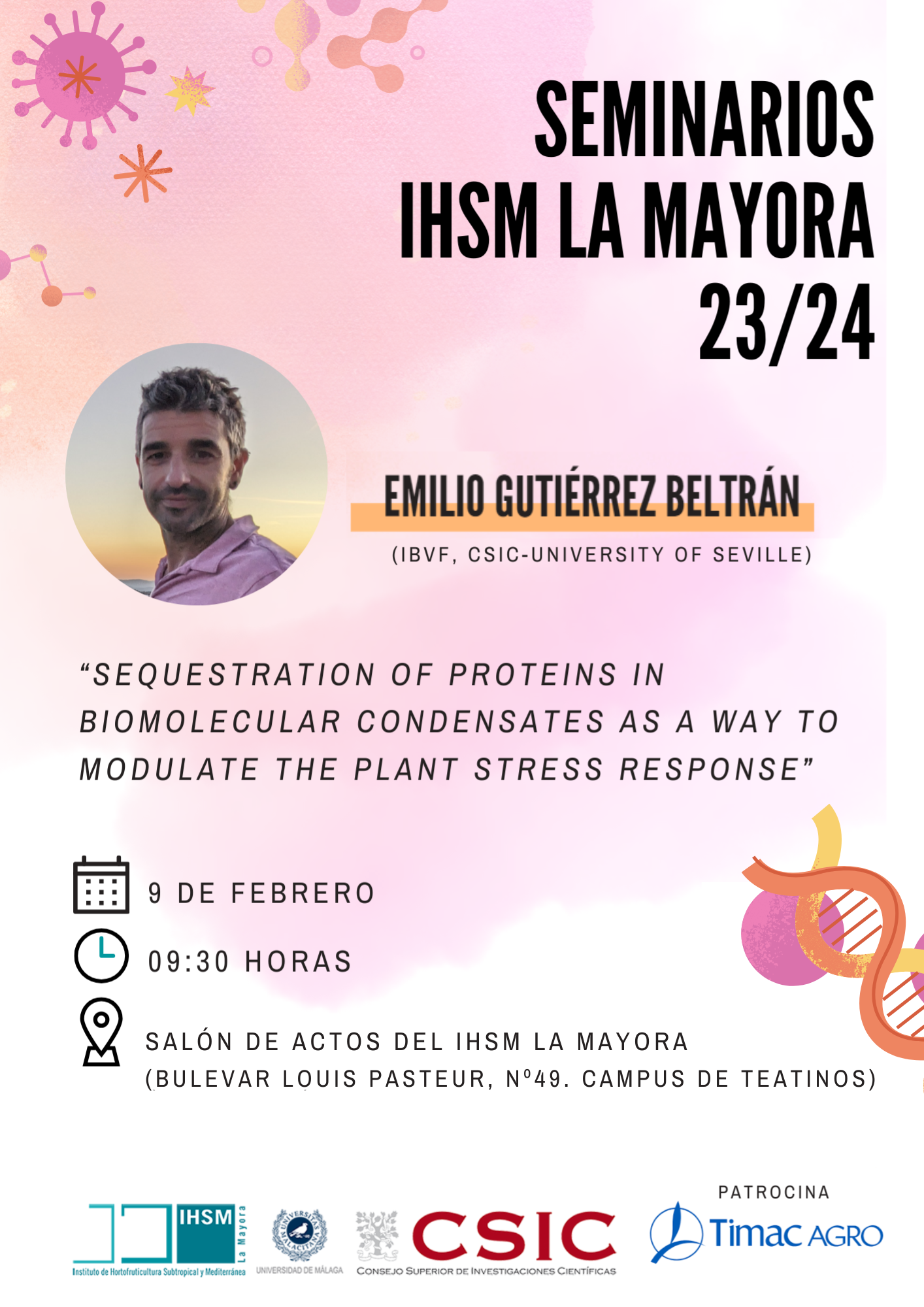
Seminarios IHSM La Mayora - Emilio Gutiérrez Beltrán (IBVF, CSIC-Universidad de Sevilla)
Biomolecular condensates are membraneless organelle-like structures that can concentrate molecules and often form through liquid-liquid phase separation (LLPS). Stress Granules (SGs) are a type of biomolecular condensates composed of RNAs and proteins that arise in the cytoplasm in response to both environmental and internal signals as an adaptive survival mechanism 1. We have recently found that in the model plant Arabidopsis thaliana, Tudor staphylococcal nuclease (TSN) is an intrinsically disordered protein acting as a scaffold for a large pool of proteins, including the evolutionarily conserved energy-sensing SNF1-related protein kinase 1 (SnRK1) 2. We have found that TSN and formation of SGs confer heat- induced activation of SnRK1 signalling via phosphorylation, thus linking TSN and SGs to the energy status of the plant cells. In addition to SnRK1, many other kinases are recruited to biomolecular condensates in plants 3, indicating that these structures may serve as platform for integrating phosphoregulatory signalling events to control specific biological processes. In this regard, we have recently found as phosphostatus of DECAPPING PROTEIN 1 (DCP1) define both its localization in condensates and its biological role.

